
 Instagram
Instagram
Hair falling out in clumps: what it is and why it happens?

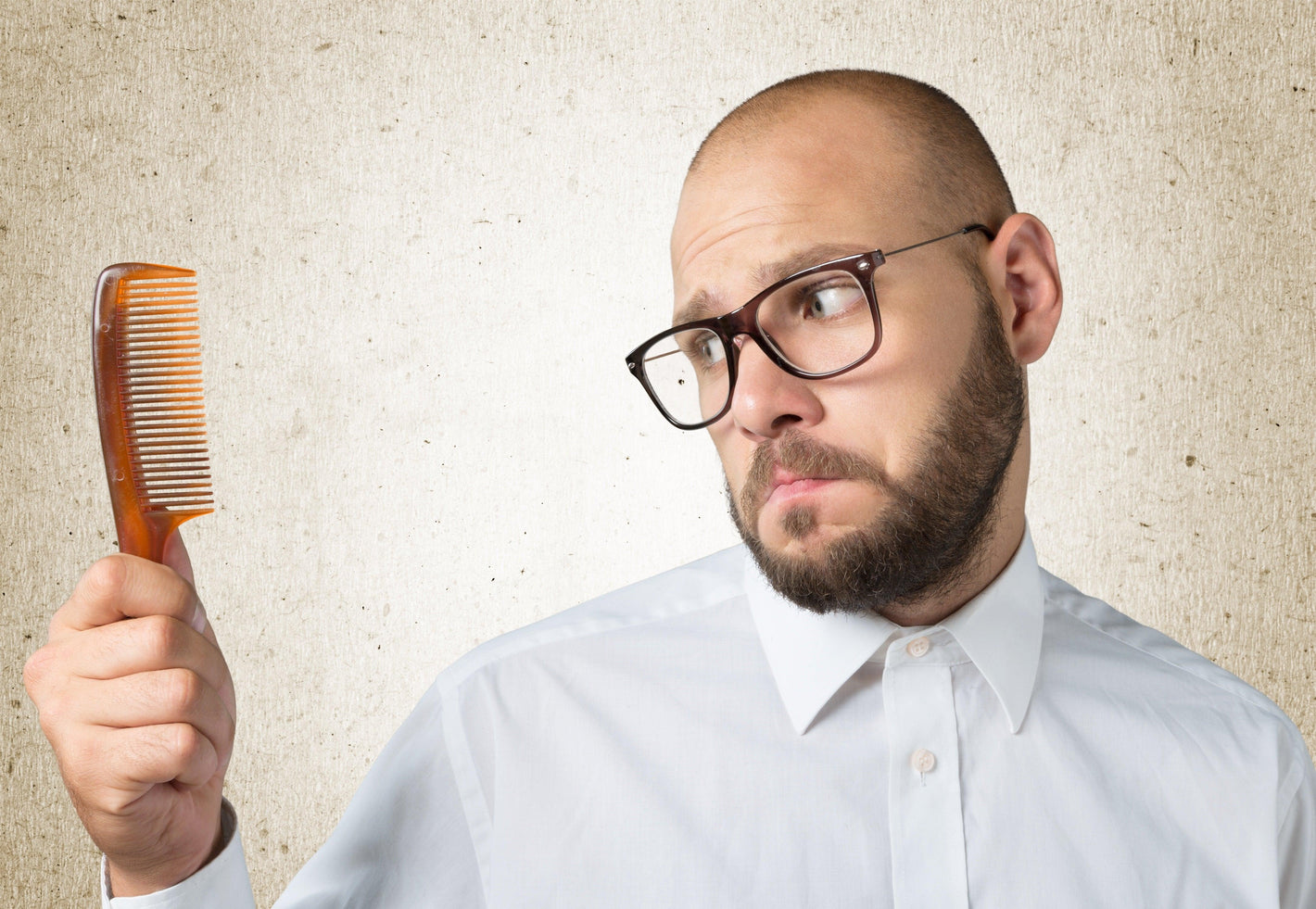
Related products
What’s covered?
Hair falling out in clumps: what it is and why it happens?
Everything you need to know about excessive hair loss.
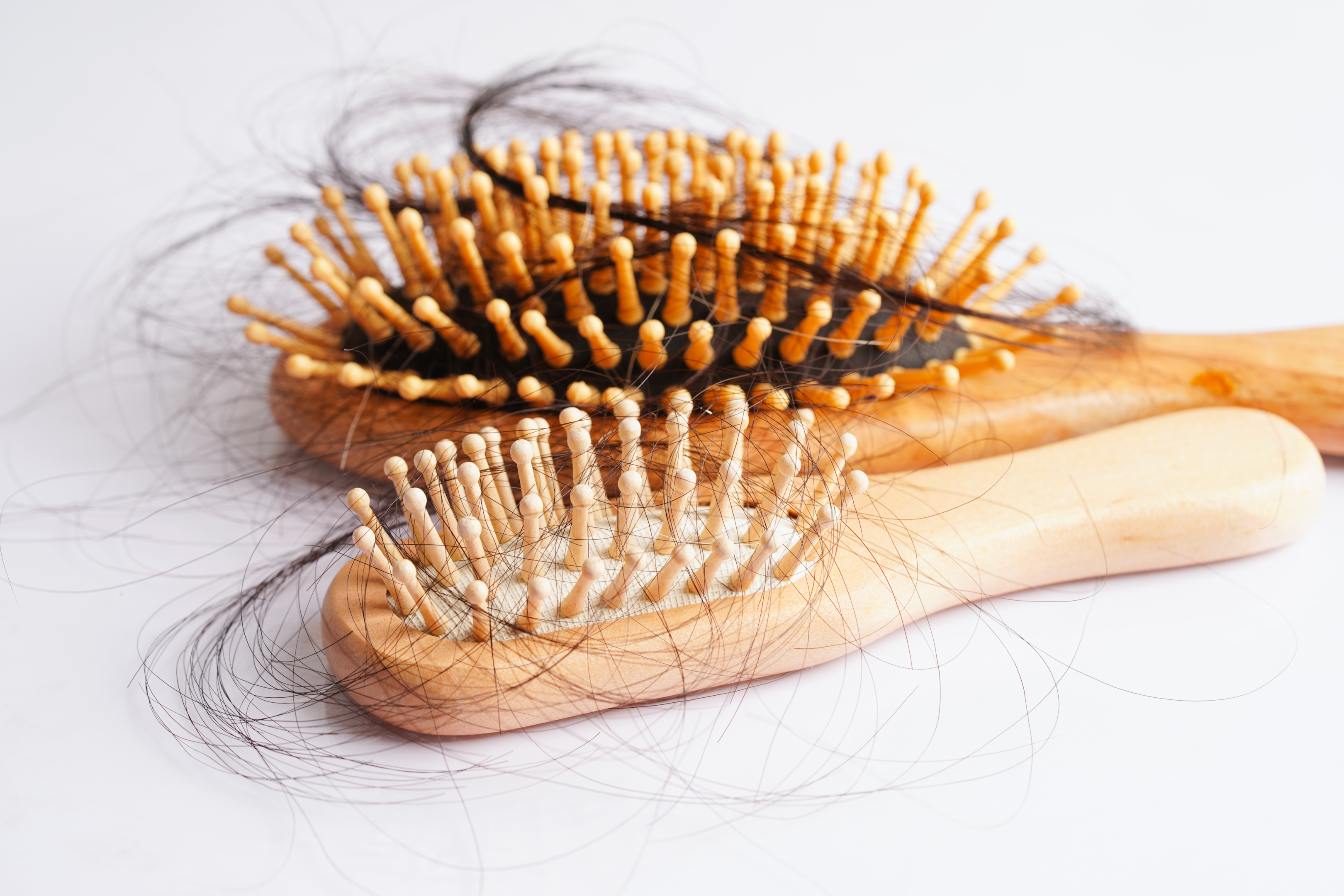
You can lose hair due to a variety of reasons. Hair fall from most causes is a slow and gradual process. But, sometimes, you will note huge numbers of hair fibres in your comb or on the floor. If you (like most others) love your hair, it would be nothing less than a disaster for you to see your beloved hairs falling so rapidly.
But what is going on? What made them tumble back to the earth so quickly? Understanding it is not difficult. First, you should understand the science behind hair fall.
Why do the hairs fall?
The answer is as straight as the question, "why a tree falls?". When the roots have disowned the trunk, the tree will fall. In the case of your hairs, these roots are the 'hair follicles'. Whenever the hair follicles are in the resting phase (telogen), they shed their strands and grow a new one to replace them.
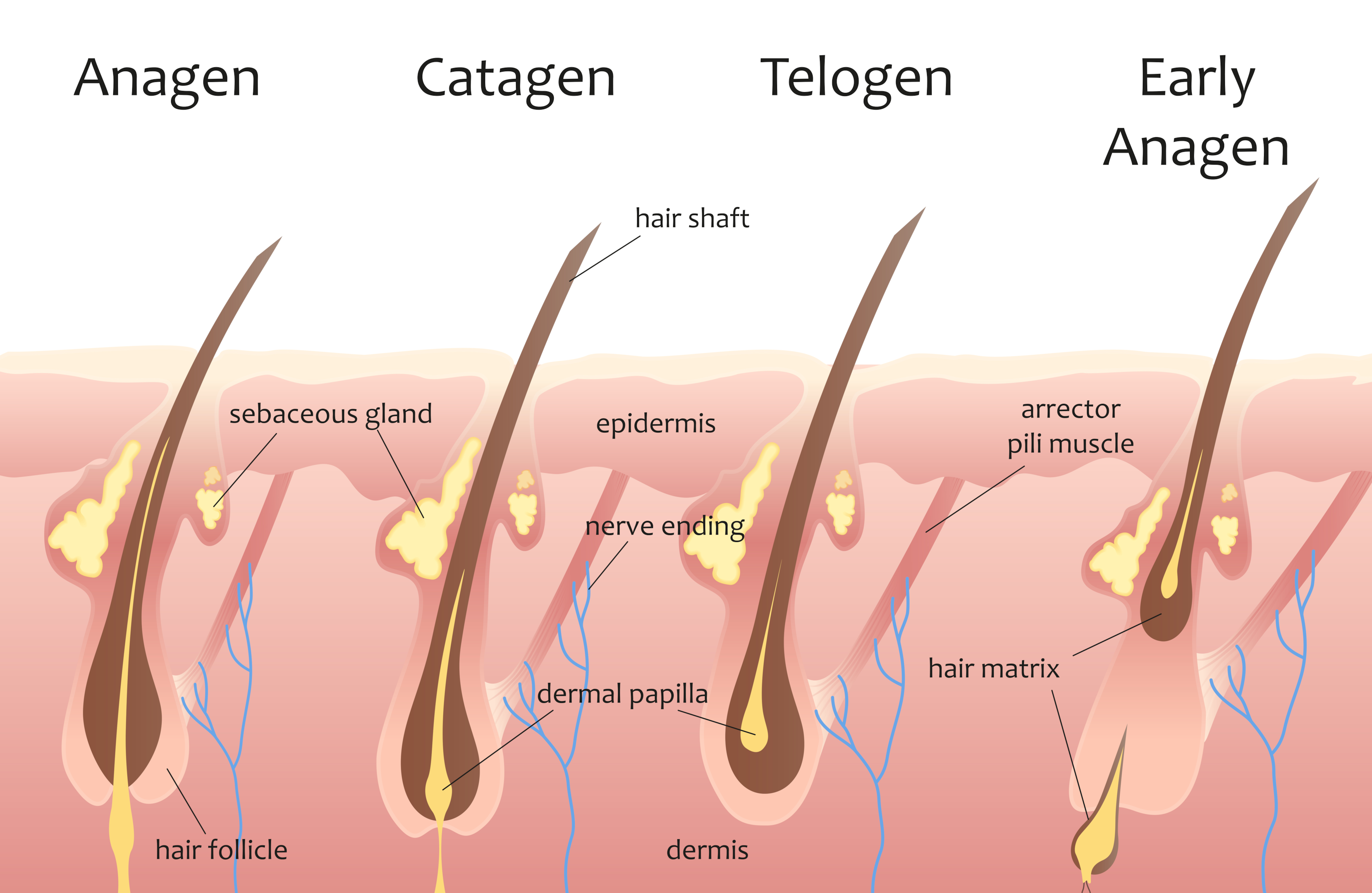
Anagen is a growing phase; it accounts for 90% of the hair on your scalp and is the longest (2-6 years) phase of hair cycle. As 5-10% of your hair are in the resting phase, you are likely to lose 50-100 threads daily out of the total corpse of 100,000 soldiers due to the normal wear and tear. However, due to various hormonal disturbances and stresses, two things happen;
-
More of your follicles enter the telogen phase, and fewer return to the anagen phase.
-
Your follicles start shrinking (miniaturisation), and new strands don't grow to replace the lost ones.
The overall result will be a rapid hair loss without further hair growth.
Why do the hairs fall rapidly?
While the mechanism involved is the same, some causes of a rapid hair fall are;
Androgenetic alopecia exacerbated by other stresses
It is a genetic cause of hair loss. You inherit the genes from your parents which increase your sensitivity to dihydrotestosterone (DHT), the hormone which causes the miniaturisation of follicles. Males will develop a receding hairline and a thin crown (male pattern baldness), while females will develop overall hair thinning (female pattern baldness).
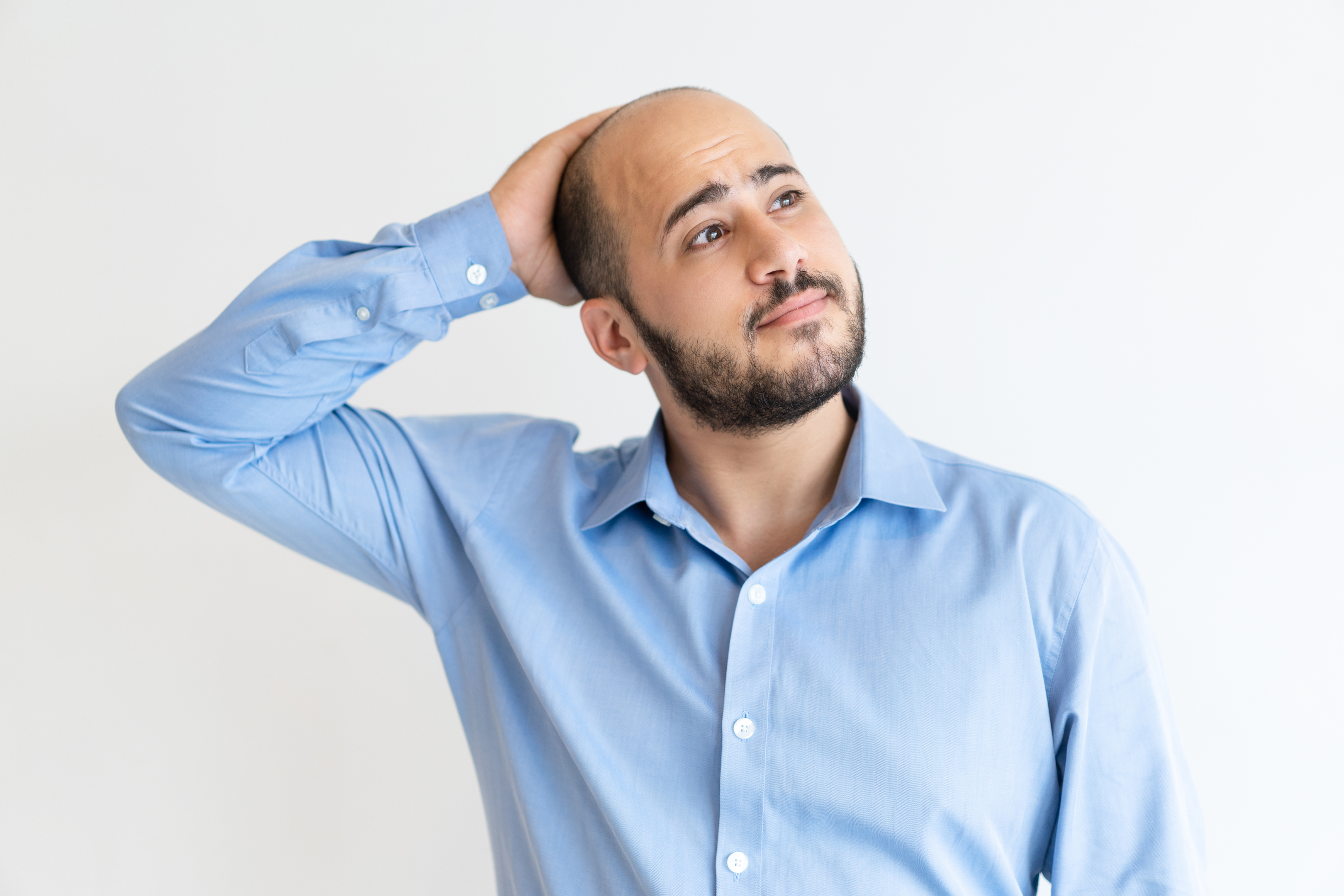
So, if your follicles are already shrinking and exposed to additional stress from chemicals, heat treatments, emotional disturbances etc., your hair will start shedding in huge numbers.
Diseases and drugs
Some disease conditions also cause extensive hair loss. These include;
-
Chronic infections
-
Lupus
-
Anaemia
The use of certain medications also causes hair fall as a side effect. These include;
-
Anticancer drugs
-
Antidepressants
-
Beta-blockers
-
Retinoids and many more.
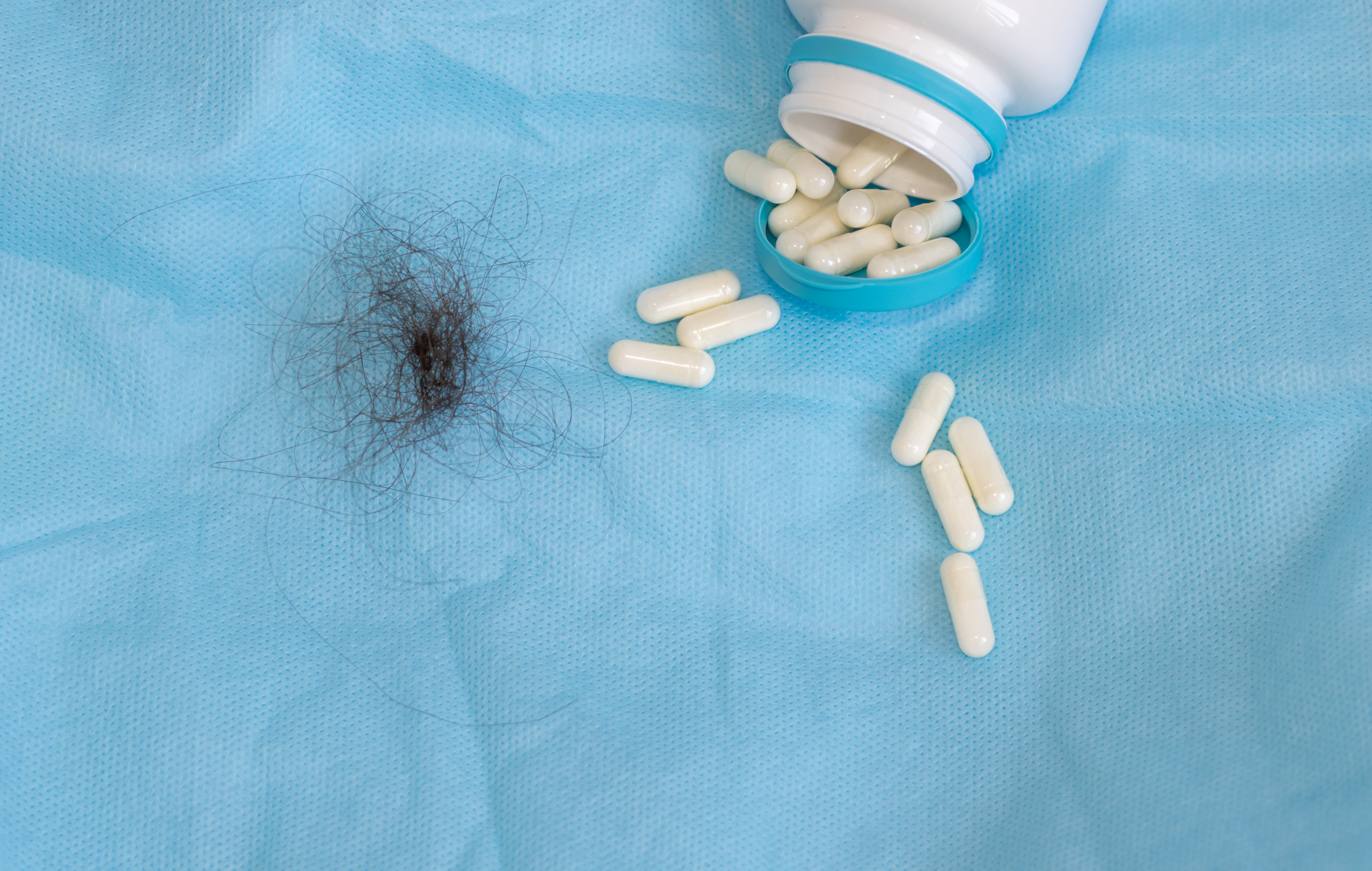
The list of drugs causing hair loss is very long. You need to observe the symptoms and tell your doctor if any such thing is noted. This hair loss will be very rapid, but fortunately, it is reversible, and you will regrow your hair as soon as you stop using the drugs or recover from the disease.
Thyroid issues
The thyroid gland produces the hormones which have a role in metabolism and energy production. The overproduction (hyperthyroidism) or underproduction (hypothyroidism) will result in hair loss.
It has a hereditary predisposition. If you have hair loss, it is wise to have your thyroid tested and take the help of your physician for treatment. If treated earlier, your hair will regrow; if left untreated, the hair follicles will be permanently damaged.
At Welzo, we provide testing services to check your thyroid health. Click here to purchase your desired thyroid test kit.
Stresses
In any stress, the body behaves just like a country under attack. All resources are diverted to repel the invasion. The same happens in any anxiety, e.g., surgery, pregnancy, the stress of a pandemic (recall COVID-19), financial losses, death or loss of a loved one etc.
The body will shed a lot of hair to help cope with the stress and conserve resources. It will happen because hairs are not vital for the body (no matter how vital for you). More hairs begin to enter the telogen phase (telogen effluvium) and are sloughed off easily with routine combing.

Such hair loss doesn't occur overnight. It takes a stress 2-6 months to cause hair fall. If you have hair loss today, look for any stress months earlier. Stress also exacerbates hair loss due to other causes, e.g., male and female pattern hair loss, telogen effluvium hair loss etc. It is again reversible if stress is removed from life.
Diet
A diet deficient in essential minerals and vitamins, e.g., iron, vitamin B, zinc, vitamin B12 etc., will lead to excessive hair fall as clumps. All these are required for a healthy scalp, and a deficiency will cause the scalp to disown its threads in protest.

However, vitamin and mineral supplements should not be used without consulting the doctor, as excessive use (e.g., selenium, vitamin A) can also cause hair loss.
Autoimmune conditions (alopecia areata)
Your immune system protects you from external bacteria and viruses. However, sometimes, it goes wild and starts killing the body cells (its identification mechanisms fail, and it identifies the body's cells as foreign agents). What will be the result of this fratricide? If this civil strife reaches the scalp, the hair follicles are killed en masse, and you start losing hair rapidly.
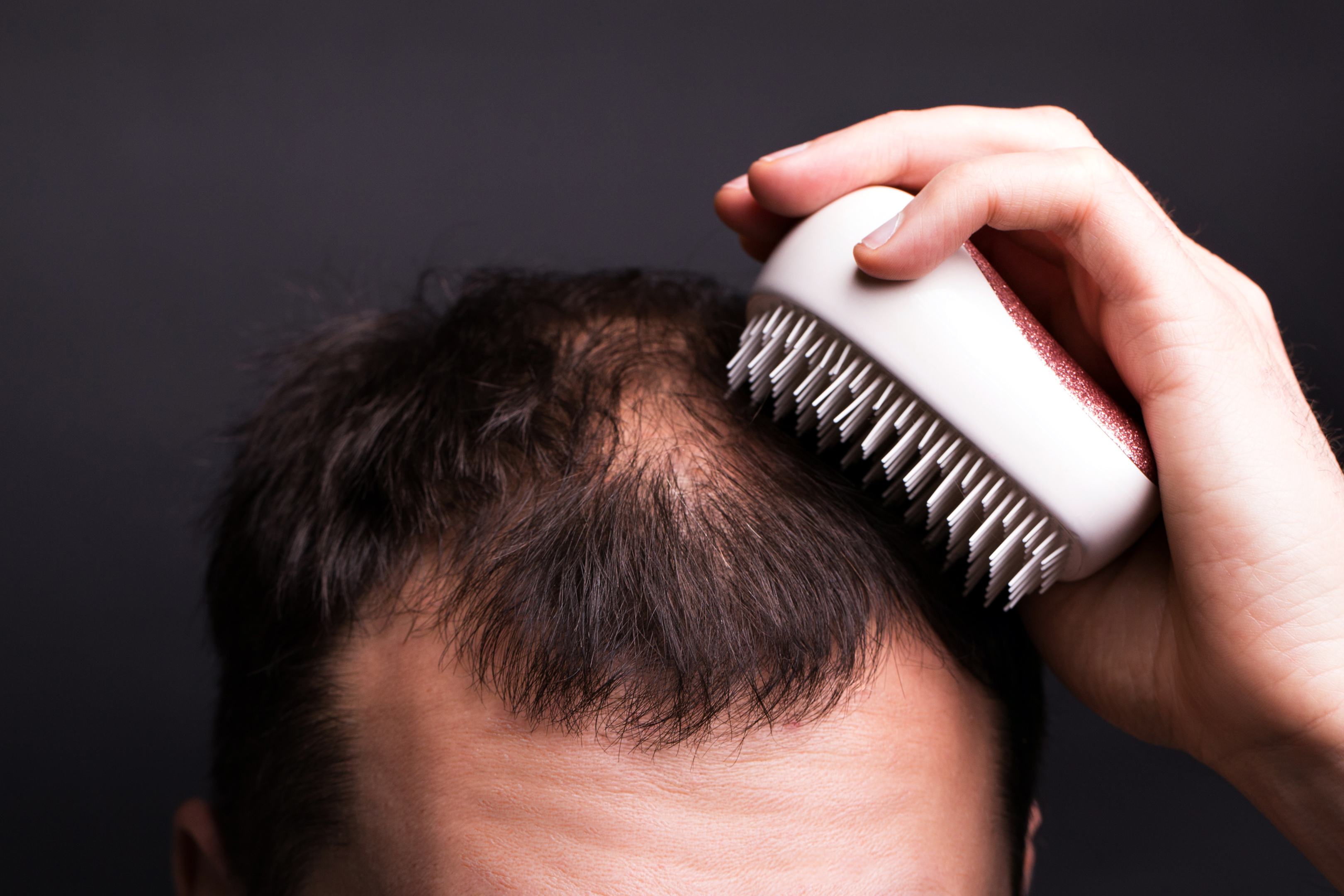
This hair fall occurs in the form of patches, and you will find bald patches surrounded by a normal scalp.
Extensive chemical and heat treatments
These treatments have a thin margin of safety and can backfire as soon as you leave safety limits. The burnt or otherwise destroyed hair follicle will shed its hair. Similarly, manual pushing and harsh treatment can also pull out the hairs (traction alopecia). So, be gentle to your strands.
Conclusion
The hairs are an important part of your personality, and losing them in clumps is extremely heart-wrenching. Hair loss commonly starts from thinning hair at the crown and temples.

Instead of worrying about which will be more counterproductive, you should go to the nearest doctor or a dermatologist to determine the underlying cause and treat it. Remember that most types of hair loss are temporary, and with earlier treatment, you can recover your lost hair and stop further loss. Also, note if the hair fall is coupled with other symptoms, e.g., a rapid weight loss.
Click here to visit our page to learn more about the hair growth cycle and hair loss. Click here to review our hair loss products and use our consultation service.
Related Services
- Hair loss treatment
- Finasteride
- Female hair loss blood test
- Alpecin Shampoo
- Regaine
- Regaine for women
- Regain foam for men
Related articles
- What vitamins support hair growth?
- Cures for itchy scalp and hair loss
- Can stress cause hair loss?
- Can masturbation cause hair loss?
- Can creatine cause hair loss?
- Best female hair loss treatments?
- The most common causes of hair loss
- How to cope with postpartum hair loss?
- How does DHT cause hair loss?
- Cures for itchy scalp and hair loss
- What vitamin deficiency causes hair loss?
- Can wearing a hat cause hair loss?
- Dutasteride vs Finasteride: What's Best for Hair Loss?
- Relationship between diet and hair loss
- Top 7 Hair loss treatments
- What happens if you stop taking finasteride?
- Does stress cause hair loss?
- Why do men go bald?
- Guide to hair thinning
- Hair thinning at the front - what are the options?
- 11 Ways you may be damaging your hair
- What is non-surgical hair replacement?
- Hair growth explained
- Why does hair fall out in clumps?
- 5 Signs of hair thinning
- How many hairs should you lose per day?
- Do I have a receding hairline?
- How to spot a balding crown
- Early signs of balding and how to stop it
- Regaine vs rogaine - what's the difference?
- How long does minoxidil take to work?
- What are DHT blocking shampoos?
- How to get rid of split ends















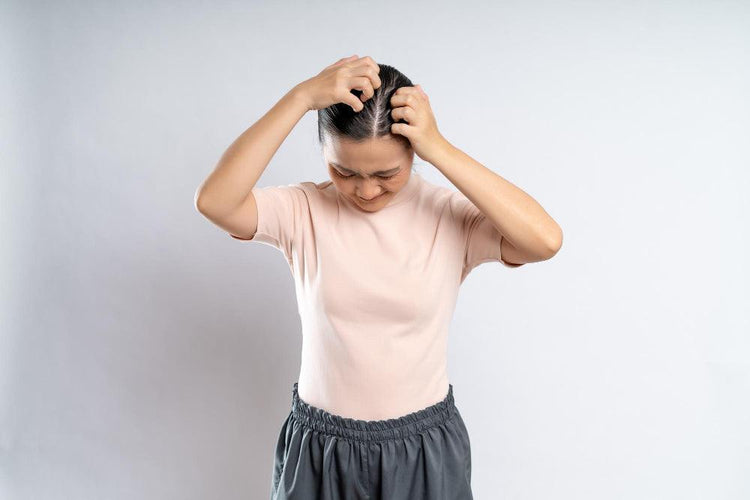
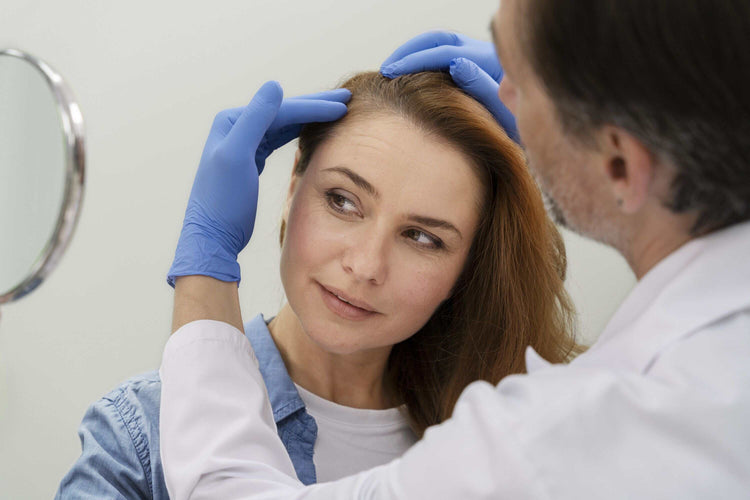

 Rated Excellent by 26,523+ Reviews
Rated Excellent by 26,523+ Reviews